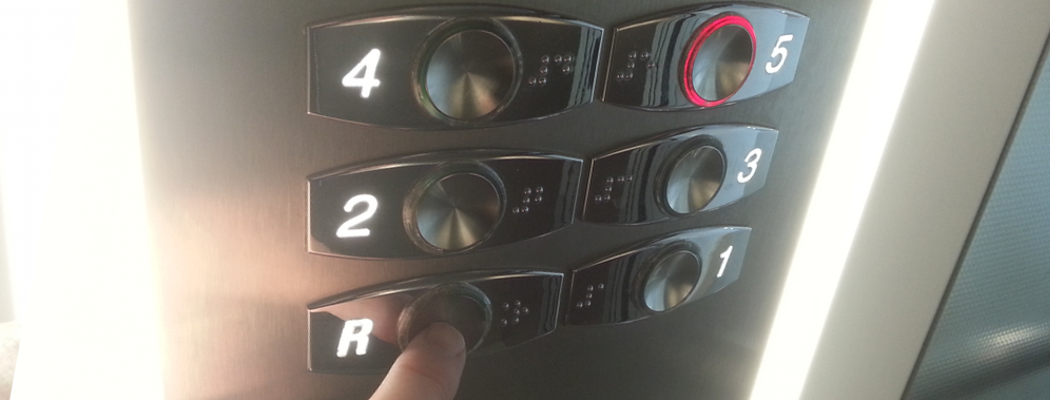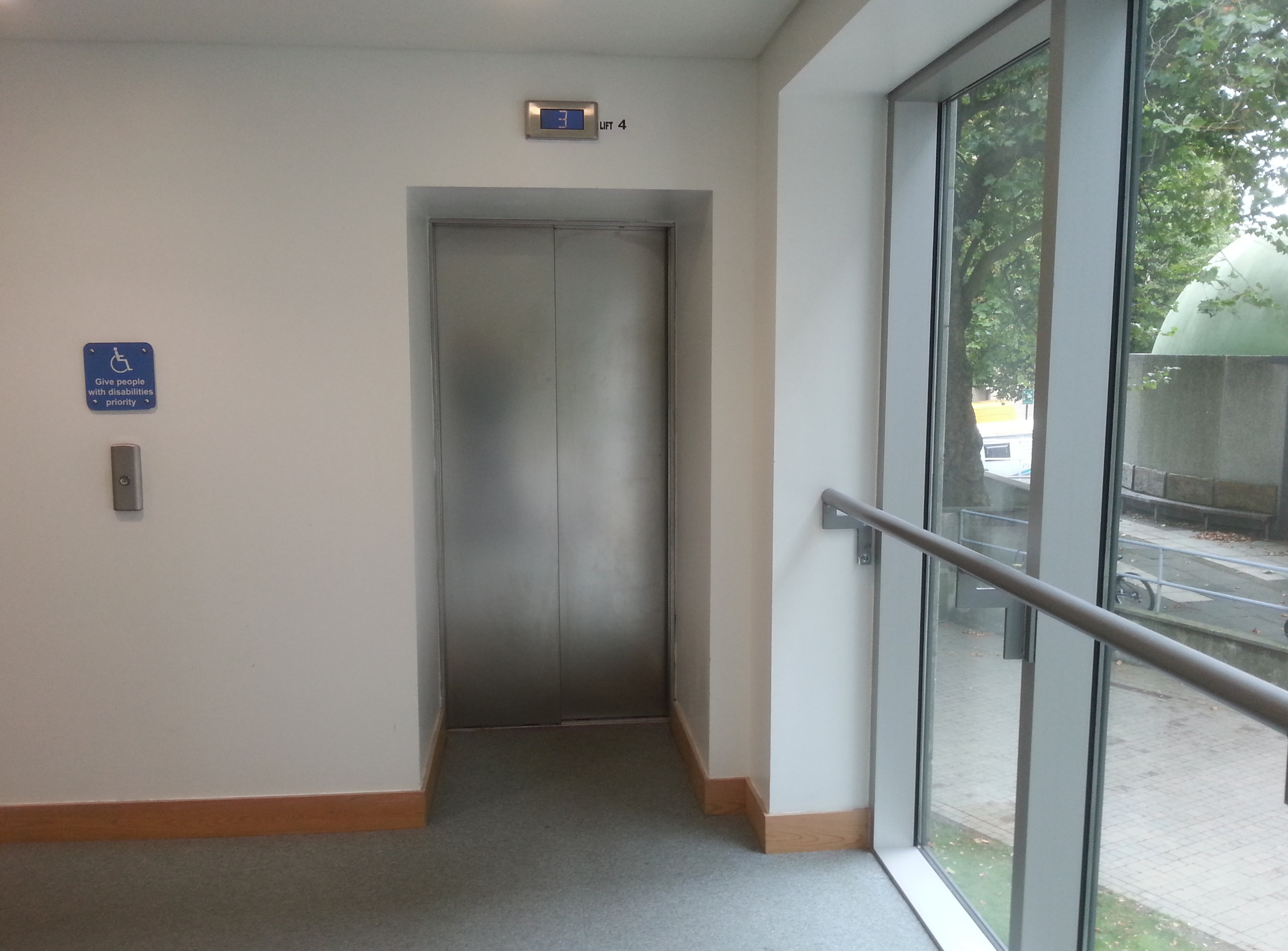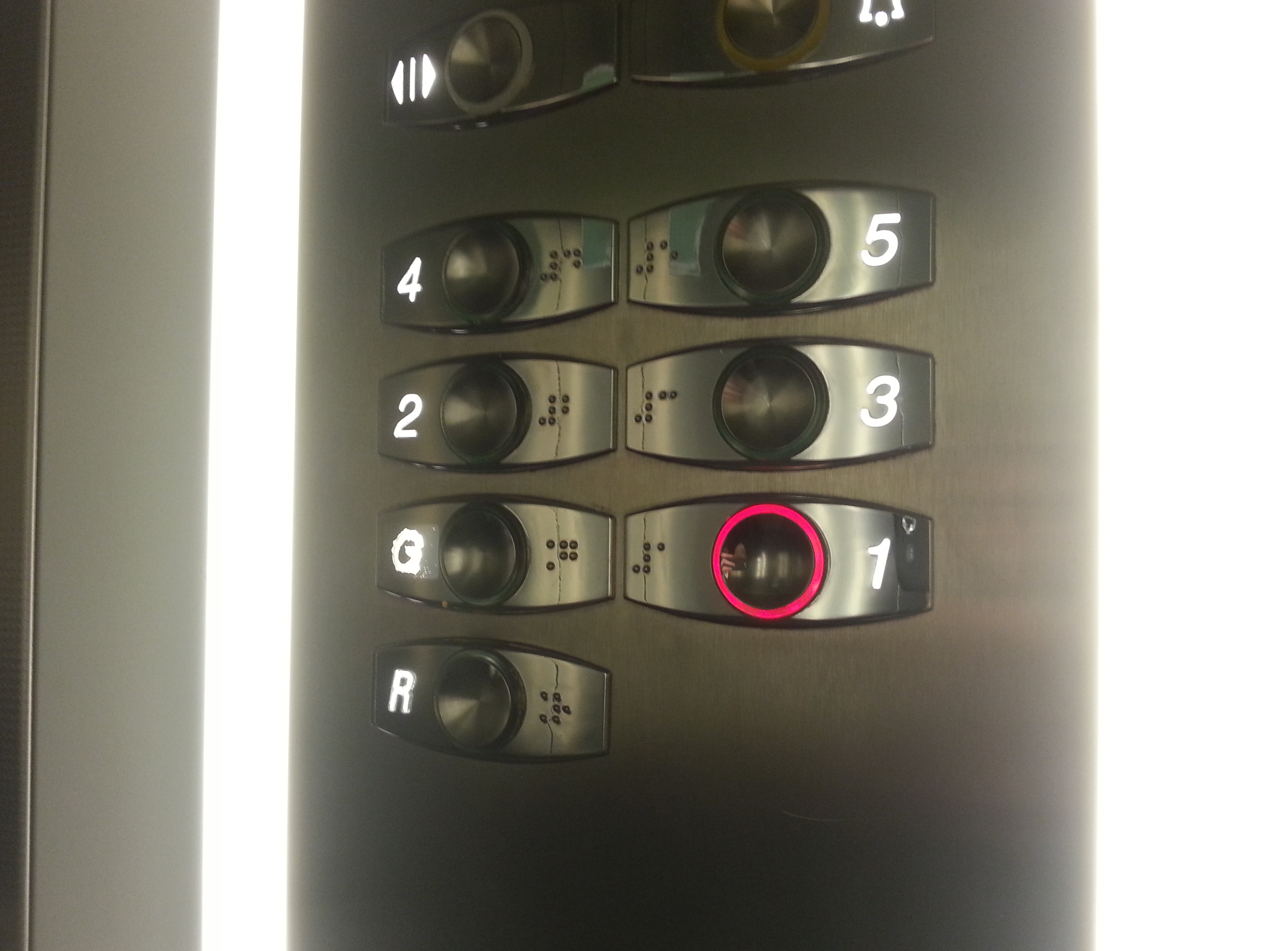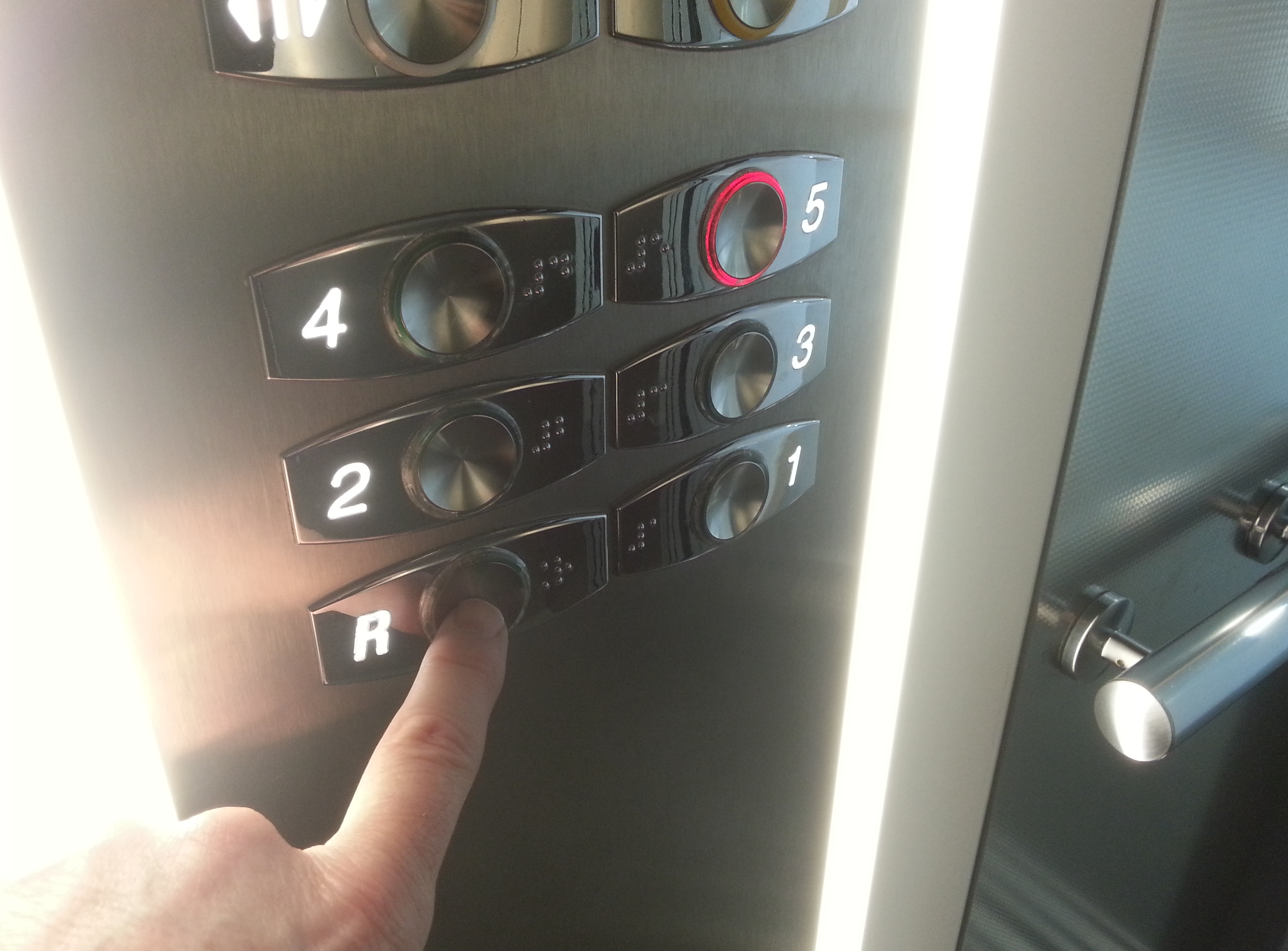Random Lift Button

“Sorry I’m late, the lift kept choosing a different floor”
Central to all of Chris Speed’s research is capitalism’s conversion of time and space into economic currencies. From land ownership that has shaped our society, to the domination of the clock through schooling and into the workplace we are forced to equate our time and space against profit. However, with the advent of digital media technologies, the familiar relationship between time and space is becoming distorted, and more interestingly adaptable, allowing us to question these economic pressures.
The Random Lift Button project was conceived as an opportunity to exemplify further the role of space at the mercy of time. Certainly in large commercial buildings lifts are implemented to squash space and enable people to move more quickly from one work activity to the next. Lifts become a temporal slippage in the experience of a building as a whole, we skip space and avoid people, places and the opportunity to see the ‘whole’. Indeed corridors and stairwells are recognised as the most important social spaces within businesses and many more negotiations and affairs occur between office spaces than within them. Just like in hypertext our choice of destination is provided to us with the minimum of ‘journeying’.
It is this temporal problem that interests Speed most about lifts and the chance to explore not the travel or the journey but the lack of one; the lost space, being in the hypertext moment and offering alternatives to allow us to reconcile the lifts economic efficiency.
It embodies the notion that not knowing where you wanted to go, and relishing the uncertainty of the navigation is a valuable human disposition and important act. The random lift button would place us directly in the centre of a non-linear moment, its outcomes uncertain and unpredictable. A sensation that would be both rewarding and entropic. Random Lift Buttons are currently installed in two lifts in Portland Square at the University of Plymouth, UK.
Chris Speed is now a Professor at the University of Edinburgh: http://www.chrisspeed.net/




